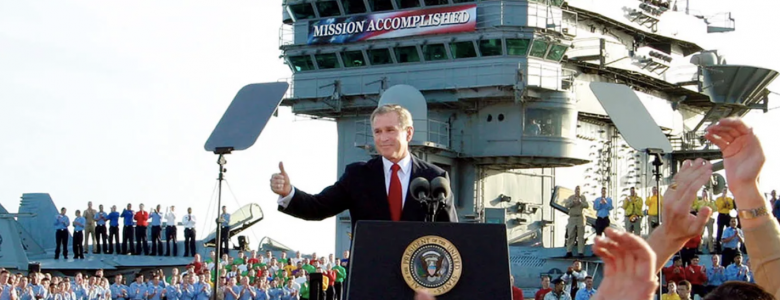Afghanistan and the Tragedy of Great Power Hubris

BRUSSELS – It is hard drawing lessons from a conflict when the dust is not yet even settling. But if one loses a US$ 2 trillion war against primitively armed clans, the question continues to haunt. Why did we start the war in the first place? Revenge against Osama Bin Laden for 9/11. Evidently. But then it blurs. The logic at the time was like a Matryushka doll: to take Bin Laden, Al Qaeda had to be defeated. To defeat Al Qaeda the Taliban had to go. And to destroy the Taliban… Afghanistan needed democracy. From the very start, however questions were asked about this irresistible mission creep. We knew that it could fail. So, why did it still happen? The main explanation for the war in Afghanistan is the following: when it started, we could afford it.
Flash back to 2001. The Russians were slowly recovering from turbulent years under Boris Yeltsin. The Chinese begged for trading with the West. Strategic rivals were not yet on the horizon. The West had its hands free and formidable weapons to work with. Knowledge was a restraining force. The West knew about the Soviet debacle in Afghanistan. Just years before, it had learned the hard way in Africa and the Balkans how difficult it is to change regimes. Diplomats and military officers knew these lessons well. But the restraining force of knowledge was overcome. First there was the thrust of vengeance; afterwards there was the rush of politicians to go to voters with short-term foreign policy success. Internal politics combined with an international position of dominance bred hubris and excess.
That is main important lesson to draw from Afghanistan. The strong can be offensive; the weak undergo it. The rest is mostly about tactics and executors struggling to make the best of ill-judged political choices. But let’s not conclude that the arrogance of power is a kind of Western disease, that it is typical for the humanitarian-driven interventionism of Bill Clinton – think of Somalia and Haiti – or the equally reckless neo-conservatism om George W. Bush, which also became so manifest in Iraq. Imperial hubris did not start with Western primacy and will not end with it.
It is visible throughout history. Just consider Afghan history. Now a victim, it has its own legacy of imperial hubris. In 1757, Ahmed Shah and his Pashtun fighters declared a holy war against modern-day India. War exhausted him and force the shah, interestingly, to send a delegation to China to propose economic cooperation. Subsequent Afghan dynasties also campaigned East of the Hindu Kush. In 1837, Dost Muhammad of Kabul asked the British for help in his war against India and local tribes. This was the start of the Great Game between Britain and Russia, the advancing of Western imperialism. It happened at Afghan invitation and essentially supplanted local imperialist zeal.
So, yes, the most recent Afghan war was an example of imperial hubris. But it would be wrong to suppose that this is a Western propensity. Another mistaken lesson would be to attribute the Afghan war to a grand strategic vision to contain China. I am surprised, still, how often this pops up in debates. Indeed 2001 brought America to China’s back garden, but China steadily learned to live with it. It appreciated the short-term security and saw very well how it exhausted its main rival in the long run. For twenty years, the West paid for securing China’s backyard, so that it could focus on pushing the US back along its long waterfront. And that is one of the reasons why America wants to get out.
Another wrong explanation would be economic interest. My students often like to write that in their essays and it circulates broadly in social media. The Americans did not earn anything at all in Afghanistan. And that might have been part of the problem. Smart empires make military engagements pay. But American imports from Afghanistan are only a few tens of millions, mostly gems. The war on terror was not that lucrative for the so-called military industrial complex either. American spending on weapons during the GWOT amounted to around 0,4% of its GDP, compared to 0,8% during the Cold War. Great power competition tends to be more lucrative than sandbox wars against primitive adversaries. If anything, Afghanistan hurt American economic interests.
So, power remains the main catalyst of international politics. Seldom do rich societies manage to use it wisely and therefore also lose it after a while. Hubris comes before the fall. That’s the key lesson, but we do not seem to get it. And if there would be one more important lesson to draw, it would be this: that despite all available insight and information we seldom learn, so that it becomes difficult to escape from the cycle of hubris and demise. Today it is the West licking the wounds of its recklessness, but don’t we already see China growing in power and assertiveness? Picture: George W. Bush declaring combat ops in Iraq to have ended, 2003. Getty.
